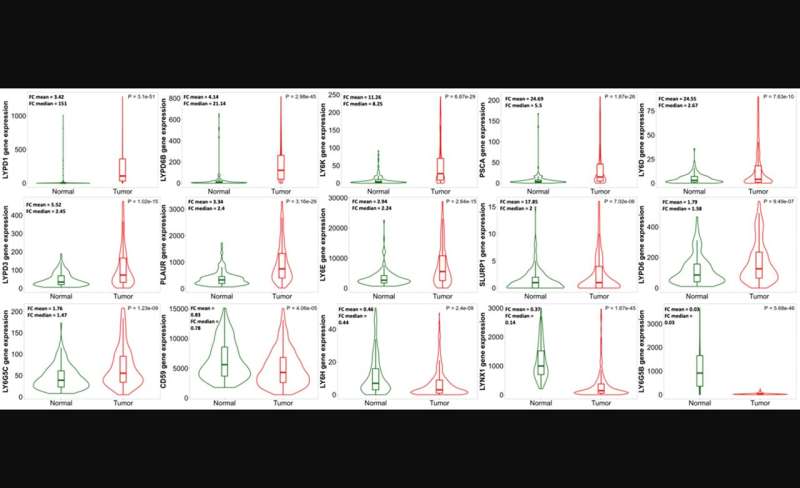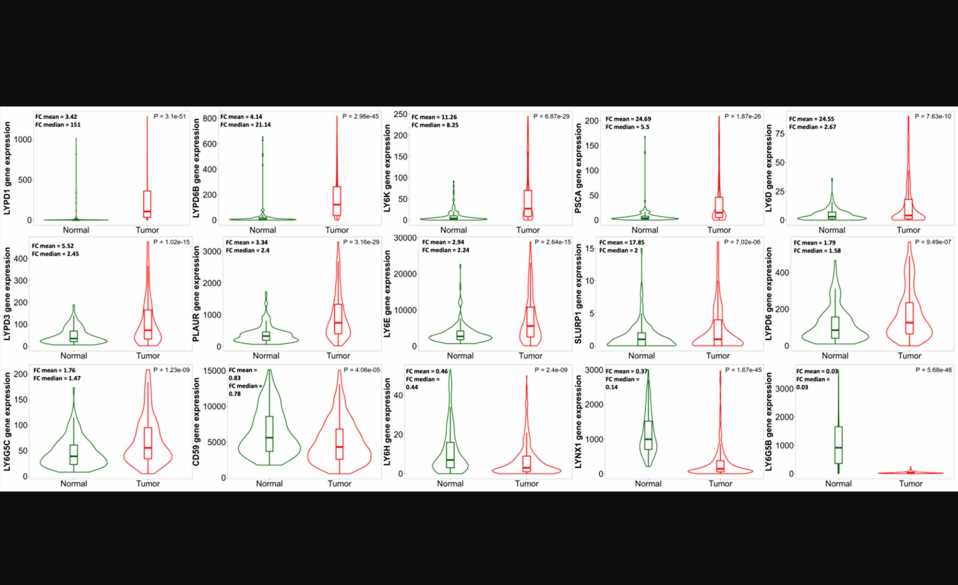
A new research paper was published in Oncotarget, titled, “Human LY6 gene family: potential tumor-associated antigens and biomarkers of prognosis in uterine corpus endometrial carcinoma.”
The human Lymphocyte antigen-6 (LY6) gene family has recently gained interest for its possible role in tumor progression. In this new study, researchers Luke A. Rathbun, Anthony M. Magliocco and Anil K. Bamezai from Villanova University carried out in silico analyses of all known LY6 gene expression and amplification in different cancers using TNMplot and cBioportal. In addition, the team analyzed patient survival by Kaplan-Meier plotter after mining the TCGA database.
“We report that upregulated expression of many LY6 genes is associated with poor survival in uterine corpus endometrial carcinoma (UCEC) cancer patients,” say the researchers.
Importantly, the expression of several LY6 genes is elevated in UCEC when compared to the expression in normal uterine tissue. For example, LY6K expression is 8.25 times higher in UCEC compared to normal uterine tissue, and this high expression is associated with poor survival with a hazard ratio of 2.42 (p-value = 0.0032). Therefore, some LY6 gene products may serve as tumor-associated antigens in UCEC, biomarkers for UCEC detection, and possibly targets for directing UCEC patient therapy.
“Further analysis of tumor-specific expression of LY6 gene family members and LY6-triggered signaling pathways is needed to uncover the function of LY6 proteins and their ability to endow tumor survival and poor prognosis in UCEC patients,” the authors conclude.
More information:
Luke A. Rathbun et al, Human LY6 gene family: potential tumor-associated antigens and biomarkers of prognosis in uterine corpus endometrial carcinoma, Oncotarget (2023). DOI: 10.18632/oncotarget.28409
Journal information:
Oncotarget
Source: Read Full Article
